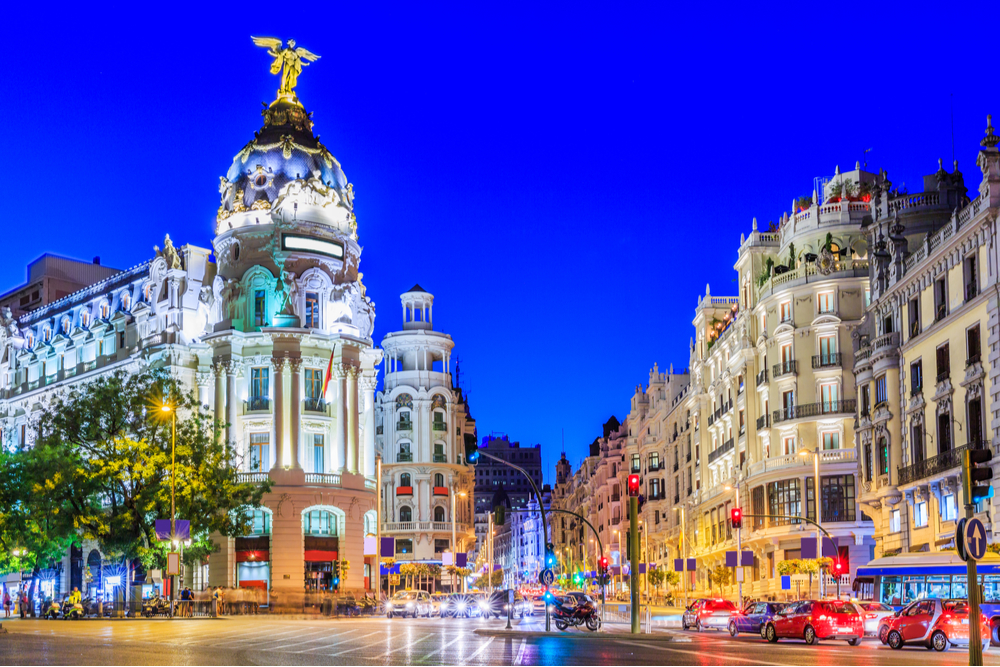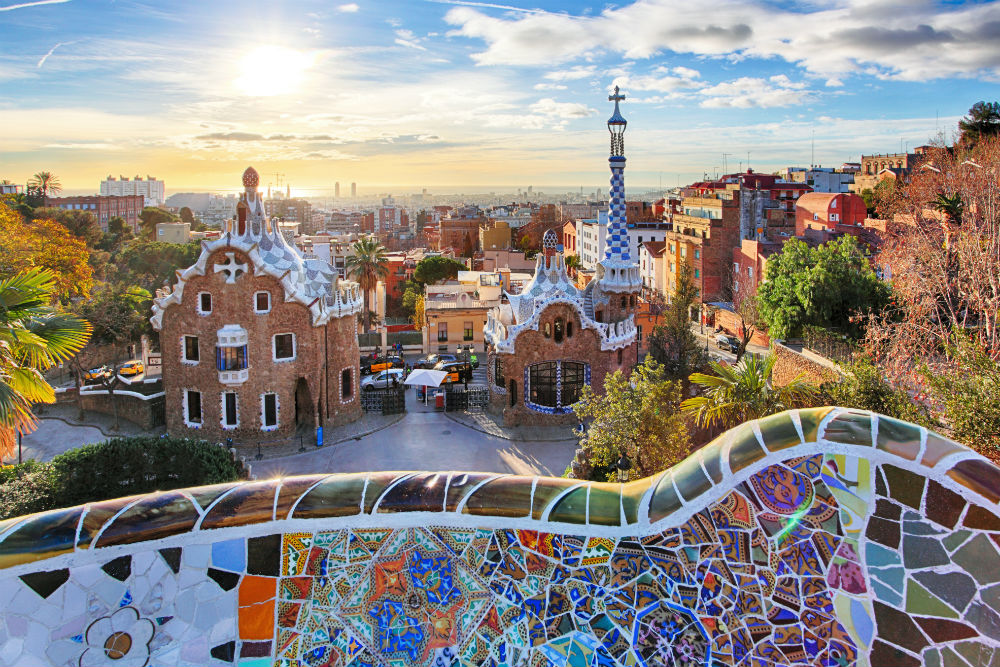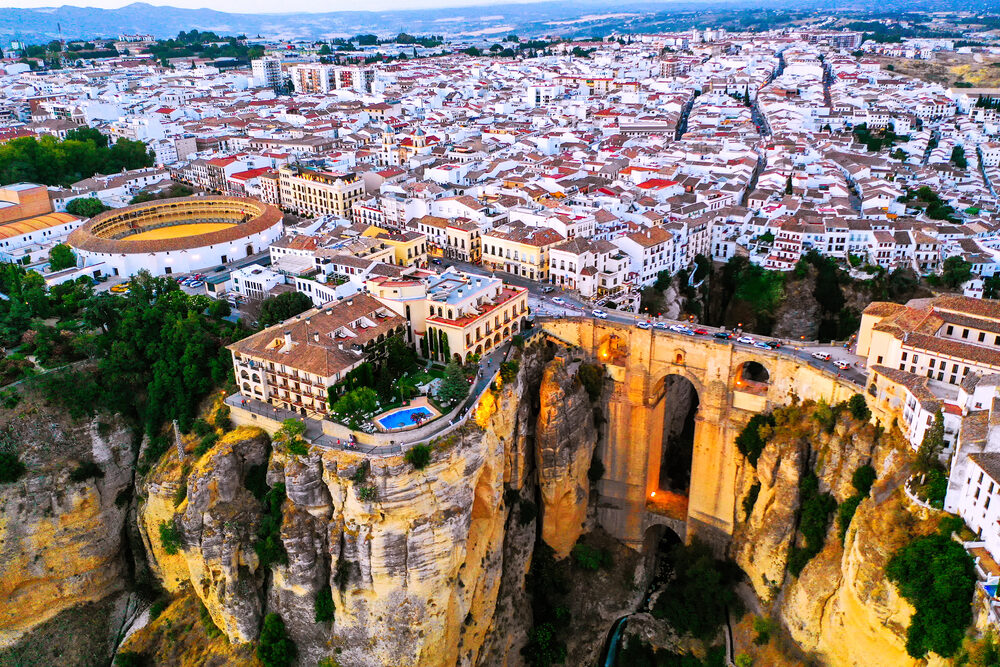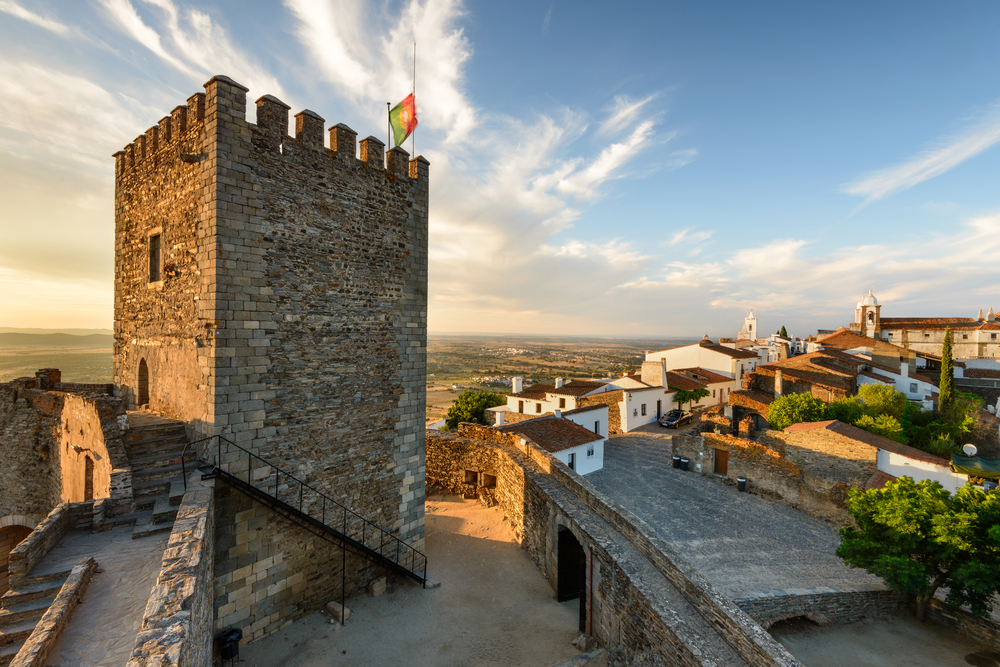The Algarve: Insider’s Guide to the Southern Slice of Portugal
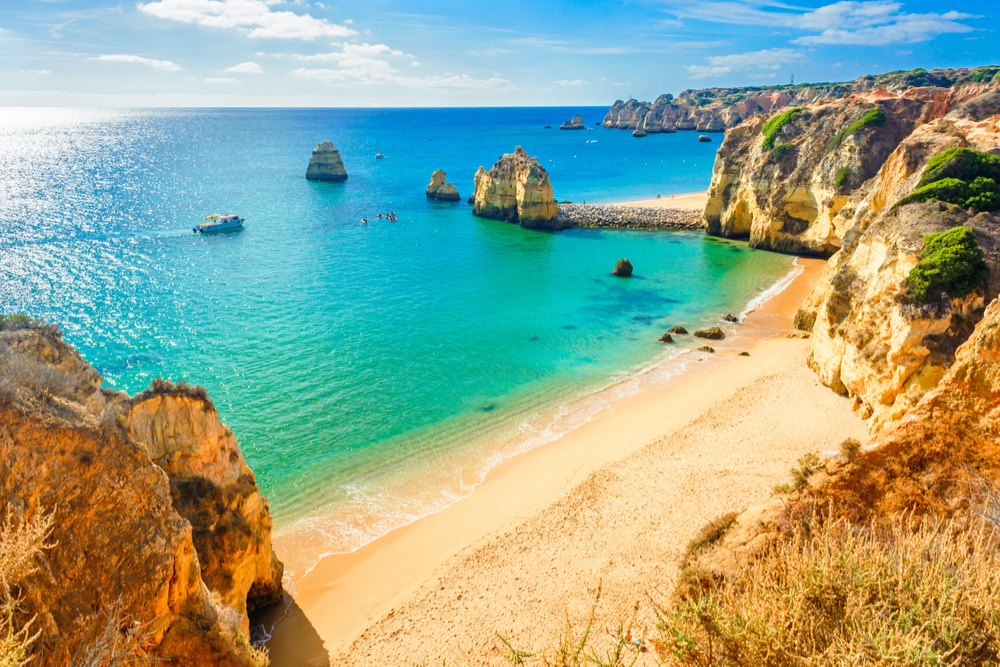 The beaches in the Algarve are known for their vivid hues. Photo: Shutterstock
The beaches in the Algarve are known for their vivid hues. Photo: Shutterstock
The insider advice on this page is from one of Wendy’s Trusted Travel Experts for Spain and Portugal: Virginia Irurita of Made for Spain & Portugal.
Born and raised in Spain, Virginia has a little black book thick with the names of local experts eager to show you their corners of the Iberian peninsula: architects, chefs, flamenco dancers, museum curators, even aristocrats living in ancient castles and palaces that are practically museums themselves. Her bespoke itineraries extend to all of the Balearic Islands, Madeira, Tenerife in the Canary Islands, and São Miguel in the Azores. Virginia has a keen interest in wine and winemaking, and she is well-connected in the foodie world. Her savvy local drivers and clever guides will save you considerable time and hassle. If you prefer to rent a car and drive yourself, click to Ask Wendy for a different recommendation.
What to Do and See
Most underrated place
Faro, the capital of the Algarve. Most people avoid it, but it’s a beautiful city. Walk around the historical port and old quarter; let yourself get a little lost, do some shopping, and people-watch.
Most overrated place
The Benagil caves. Though beautiful, they have become very touristy and draw crowds.
Best beaches
Praia da Marinha, with its golden cliffs, crystal-clear waters, and natural arches, is one of the region’s most iconic spots—perfect for snorkeling or capturing that postcard-worthy photo.
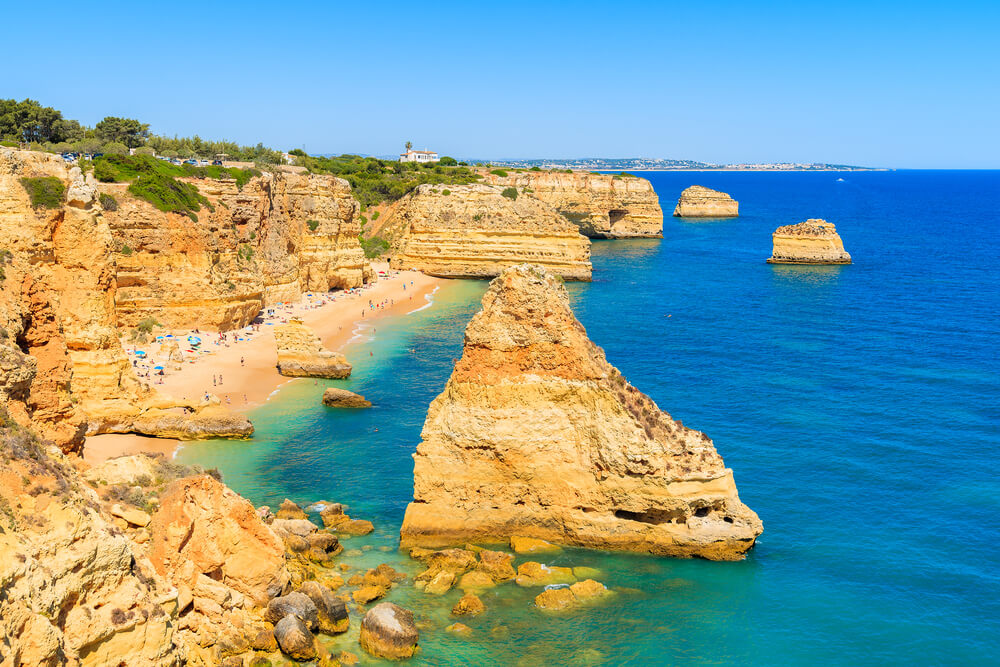
Praia da Falésia is a gorgeous stretch of peachy sand flanked by cliffs. Photo: Shutterstock
Hidden gem
The hidden gem of the Algarve is its inland area—so many visitors think only of the beaches. Tavira, in an area near the Spanish border that not many people visit, is what you might call a “slow city,” with a big focus on sustainability, maintaining neighborly connections, and preserving traditional gastronomy.
Cheap thrill
Take in the vista from one of the Algarve’s many beautiful viewpoints. At the one just underneath the Castle of Santa Caterina, you can look out on Rocha Beach while sipping an orange and maracuyá juice (the latter native to South America, and symbolic of the region’s melting pot of cultures) purchased from a roadside stand. Another fantastic viewpoint is the Cabo de Saõ Vicente lighthouse in Sagres; one of continental Europe’s westernmost points, this is the perfect place to enjoy the sunset.
Prime picnic spot
Right outside of the village of Alte—and in many other picturesque inland villages in the area—are some natural springs (fontes) that were once used to wash dishes and clothes. Nowadays, many locals bring a picnic of smoked sausages or barbecue some sardines or baby pork on the spring’s stone grill.
How to spend a lazy Sunday
Walking along a beach and stopping at one of the little restaurants by the water to enjoy a local specialty: rice cooked in a cataplana (a hammered copper dish) with prawns or fish.
Where to Stay and Eat
Best-value splurge hotel
The Vila Vita Parc is a five-star hotel set right on the spectacular coast of the Algarve, creating an exclusive enclave with every amenity you can imagine. All of its rooms, suites, and villas have private balconies and terraces overlooking the sea, and there are flower-filled gardens, a superb spa, and the Michelin-starred Ocean restaurant.
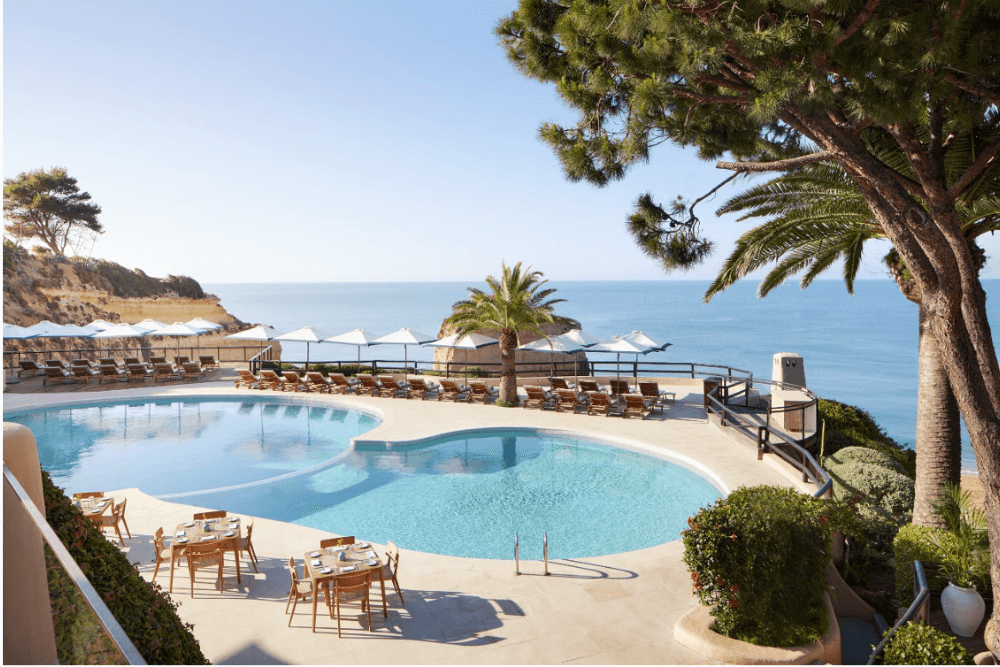
The Vilalara Grand Hotel is perched above a golden-sand private beach. Photo: Vilalara Grand Hotel
Best bang-for-your-buck hotel
Set in a secluded location on the Algarvian coast, the Vilalara Grand Hotel Algarve is dedicated to well-being and sensory bliss. Guests in its suites and apartments have access to five swimming pools, a state-of-the-art spa, five restaurants, extensive gardens, and a golden-sand private beach.
Restaurants the locals love
Gigi’s, inside the Quinta do Lago golf resort, is a favorite of both locals and foreigners for lunch. Once a very casual place, it has gained fame for its superb seafood (prepared simply, without sauces), and for the big personality of its owner. Be prepared for a walk: Gigi’s is located right on the beach, at the end of a very long footbridge over a lagoon and some sand dunes.
If visiting in wintertime: Restaurante Carlos, in the village of Sagres, serves great feijoada: a bean stew cooked with many different meats—or in some cases squid—and served with rice. Another great cold-weather choice here is the pork and clam stew served with potatoes.
Dishes to try
Cataplana de marisco (seafood stew cooked in a clam-shaped copper pot) is one of the Algarve’s most iconic dishes. Packed with clams, prawns, and fish simmered in garlic, tomato, and white wine, it’s both hearty and full of flavor. Many seaside restaurants serve it as a dish to share—the ultimate taste of the ocean.
Sardinhas assadas (grilled sardines) are a summer staple and a true symbol of Portuguese coastal life. Simply seasoned and grilled over charcoal, they’re best enjoyed outdoors with a slice of bread and a glass of local wine. Town festivals in June and July often fill the air with their smoky aroma.
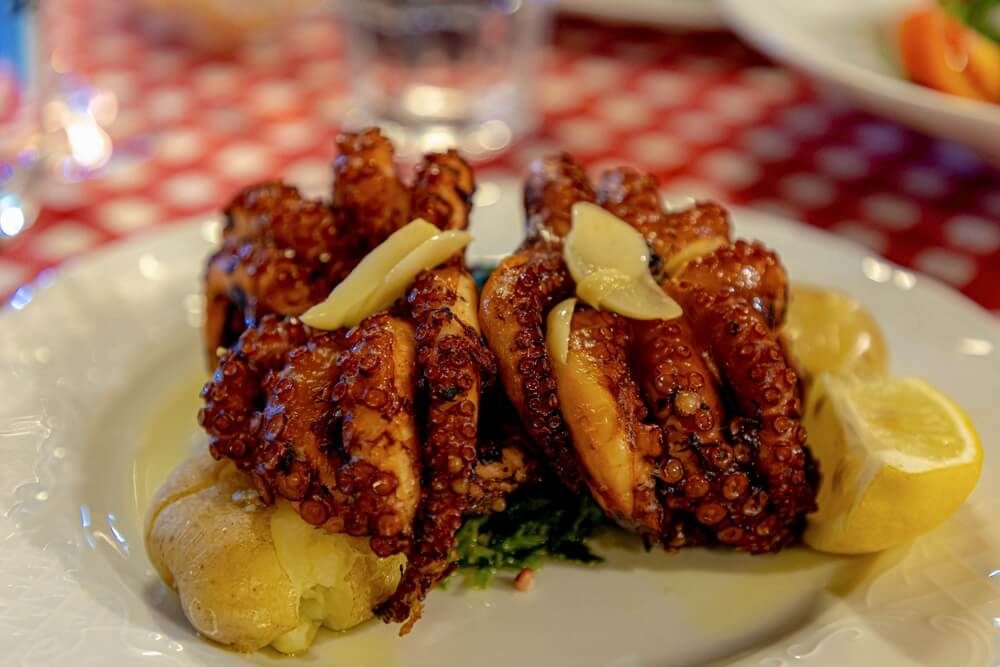
A beloved local dish—roasted octopus. Photo: Shutterstock
Polvo à lagareiro (octopus baked with potatoes and olive oil) is a beloved specialty for seafood lovers. The octopus is tender and lightly charred, drizzled generously with golden Algarve olive oil. It’s rustic, simple, and deeply satisfying.
Dom Rodrigos (traditional Algarve sweets) are a must-try for dessert. Made with egg yolks, sugar, and ground almonds, they’re wrapped in colorful metallic foil. These little parcels are as festive as they are delicious, a sweet ending to any Algarvian meal.
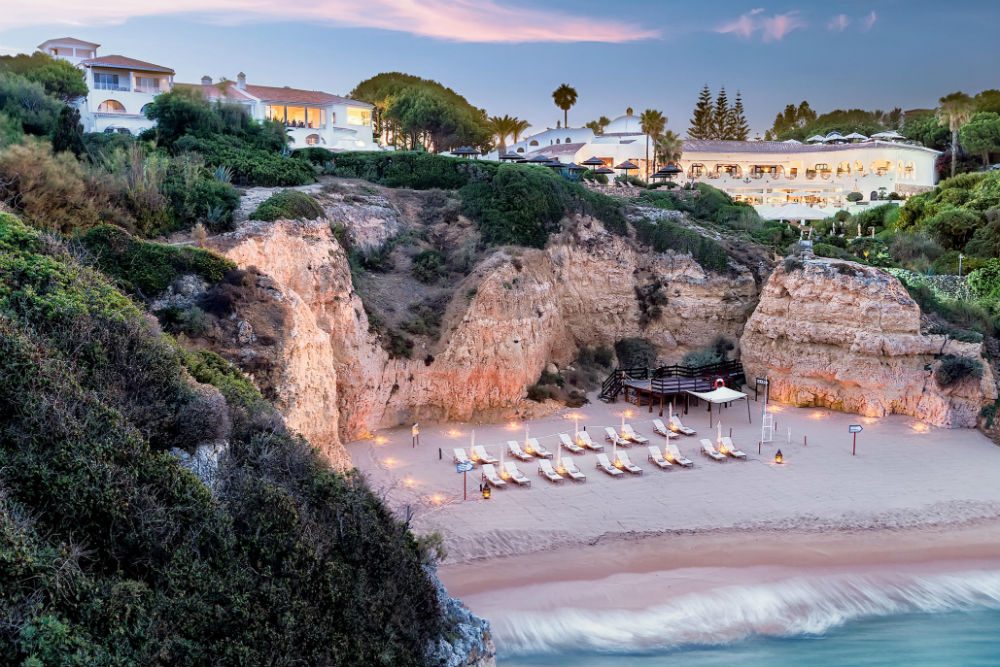
Ocean Restaurant at the Vila Vita Parc overlooks the Atlantic shore. Photo: Vila Vita
Meal worth the splurge
Visit the two-Michelin-star Ocean Restaurant at Vila Vita Parc, where you can take in spectacular views of the Atlantic while enjoying the seafood-centric menu. Chef Hans Neuner prides himself on sourcing nearly all of his ingredients locally and uniting diners with Algarvian nature via both his dishes and the intimate dining room, which makes you feel at one with the vast ocean below.
Best Times to Go
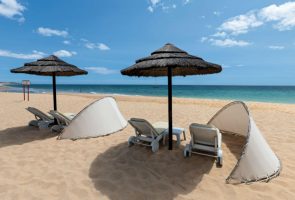
May, June, and October. The weather is beautiful and it’s not too busy, so you can get a table in the restaurants and enjoy uncrowded beaches.
In March, the almond trees are in blossom—quite an amazing spectacle.
Worst Times to Go
July and August, when it’s very hot and there are too many tourists, and January and February, when many shops, restaurants, and hotels close for winter.
Biggest Rookie Mistake
Not realizing that each area of the Algarve is different, and that not all of it has been overrun by German and British tourists—much of the land is actually protected by nature reserves. Each city has its own character, as well: Albufeira, Quarteira, and Vilamoura are great if you’re looking for an unpretentious place to enjoy sun and beach time; if you are younger and looking for nightlife, Lagos is the place.
Bragging Rights
The Algarve is famous for its oysters and clams. Virginia can arrange for you to spend a morning exploring Ría Formosa Natural Park by boat with a naturalist who can tell you about the flora and fauna of the area. Stop in a village on a small island to learn the ropes of gathering mollusks with a fisherman, and afterward taste them—when they’re this fresh, all the local oysters need is just a little pepper or lemon. (No translator necessary either: Many of the villagers speak English, because American television programs are subtitled rather than dubbed!).
Tipping Tip
Don’t tip too much, or the locals will consider you “not in the know.” Instead, if you get good service, be generous with your smile and your words of appreciation, and just round up the bill.
The Souvenirs
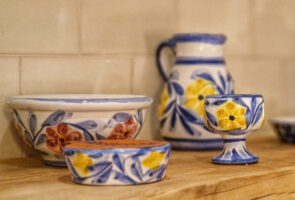
Pottery is a very old and much-vaunted craft around here. There are a wide variety of patterns and colors, all of great quality, available for purchase in the local villages.
Fig liqueur is a great delicacy that is unique to this area.
Can't-Miss Photo Op
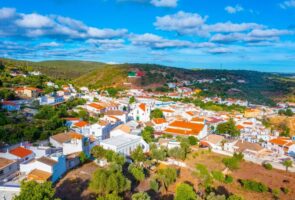
Stop outside the inland village of Alte at sunset or sunrise to snap a photo of its white houses and the stone castle sitting atop the village, like a little crown.


